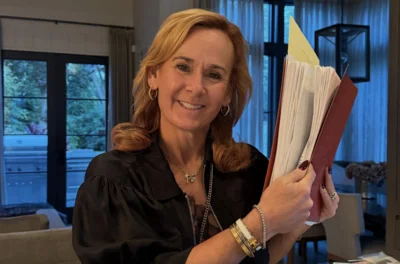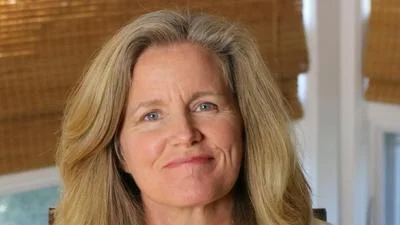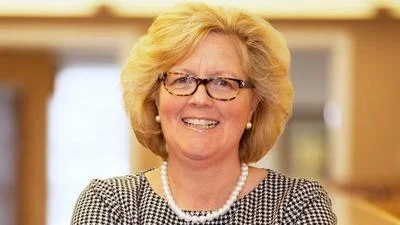Congressman Sean Casten | Congressman Sean Casten Official U.S. House Headshot
Congressman Sean Casten | Congressman Sean Casten Official U.S. House Headshot
Washington, D.C (Thursday, May 18th) - On May 18, U.S. Representatives Sean Casten (IL-06), Elissa Slotkin (MI-07), and Senator Sherrod Brown (D-OH) introduced the bipartisan, bicameral Conservation Opportunity and Voluntary Environment Resilience Program (COVER) Act with original co-sponsor Representative Mike Bost (IL-12). This bill will provide a $5/acre crop insurance discount to farmers who plant cover crops to incentivize this important soil health practice, building on the federal Pandemic Cover Crop Program.
Climate change has already made the federal crop insurance program more expensive and challenging to manage as drought, rain, and extreme weather further stress our soils. Crop insurance payments have risen more than 400% for drought-related losses, and nearly 300% for rain and flooding-related losses between 1995 and 2020. Unless we act, climate change will continue to exacerbate losses. The U.S. Department of Agriculture has estimated that without mitigating actions, the cost of the Federal Crop Insurance Program (FCIP) could increase anywhere from 10 to 37%.
Cover crops are a solution to help farmers mitigate risk. A 2023 study found that higher cover-crop adoption led to lower levels of crop insurance losses due to prevented planting. Another study found that just a 1% increase in cover crop adoption led to nearly $40 million in savings from reduced prevented planting related indemnities. With climate change threatening our food system, practices that build soil resilience are more crucial than ever. No one knows the importance of the soil that sustains us better than our farmers; they will play a vital role in achieving this goal.
Planting cover crops is a critical conservation practice that reduces production risk, prevents erosion, improves soil health and water quality, enhances soil water availability, suppresses weeds, helps control pests and diseases, increases biodiversity, mitigates greenhouse gas emissions and sequesters carbon. Aside from the ecosystem benefits, cover crops also offer economic benefits for individual farmers; planting cover crops can lead to savings on inputs like fertilizer and herbicides and improved yields over time. A 2023 poll found that 78 percent of row crop farmers support the USDA offering discounts on premiums for engaging in conservation practices that have been shown to reduce the risk of crop failure. Farmers who choose to reduce their risk by planting cover crops ought to be rewarded for their low-risk behavior.
“We are already seeing how the climate crisis is increasing the cost of the federal crop insurance program, and we know that it will continue to do so as more extreme weather events grow more frequent in the future,” said Rep. Sean Casten. “I’m pleased that my home state of Illinois has recognized the importance of cover crops with its own state cover crop discount program. The COVER Act is critical to providing farmers across the nation the tools they need to make their land more resilient in the face of climate-related risks.”
“Farmers are the original conservationists. By utilizing cover crops, they can increase yield, decrease pesticide use, and reduce runoff into waterways – like Lake Erie and Grand Lake St. Mary. That’s good for all Ohioans,” said Senator Brown. “The pandemic cover crop program was simple and popular among farmers, and it worked. We need to make sure this vital program is included in the next farm bill.”
“When it comes to helping out our farmers, cover crops can do it all: increase yield, protect soil, and save money. It’s just common sense that we encourage their use, and this legislation does exactly that,” said Rep. Elissa Slotkin. “A per-acre discount on crop insurance is a simple incentive that will put money back in the pockets of Michigan farmers, while also supporting the conservation of our lands and waterways. This program already received a positive response when it was implemented during the pandemic, so including it in this year’s farm bill is a no brainer.”
“Cover crops are a critical and increasingly popular tool for improving soil health and reducing erosion. They provide a variety of environmental benefits, such as reducing nutrient loss, improving water quality, and supporting wildlife habitat. However, many farmers are hesitant to plant cover crops due to the upfront costs and risks associated with changing their traditional crop rotation practices. The COVER Act addresses these concerns by offering a simple and cost-effective way to incentivize farmers to adopt cover crops. It is essential that farmers and agriculture organizations support voluntary programs that help growers adopt conservation tools that work on their farms,” said the Illinois Soybean Association.
“Farmers and ranchers are on the front line of climate change. They need targeted, voluntary incentives to make on-farm climate action accessible,” said National Farmers Union President Rob Larew. “The COVER Act would empower farmers to apply climate-smart practices that move carbon out of the atmosphere and into the soil, while building soil health for more resilient operations. We appreciate the leadership of Senator Brown and Representative Casten in introducing this bill.”
“The COVER act is a long overdue update to crop insurance that rewards farmers who practice good stewardship with a lower crop insurance bill. For a small investment in cover crops through this bill, there is a huge return to the public in improved water quality, carbon sequestration, and resilience to drought and flood,” said Lara Bryant, Deputy Director, Water & Agriculture, Natural Resources Defense Council.
"Cover crops have the power to make our soil and our farms more resilient. The COVER Act rewards farmers who voluntarily plant cover crops in fields between the growing seasons with savings on their crop insurance premiums. I commend Senator Brown and Rep. Casten for introducing this important piece of legislation as we continue to work on the upcoming Farm Bill," said Kris Reynolds, Midwest Regional Director, American Farmland Trust.
“Illinois Farm Bureau members who plant cover crops in their operations have benefitted from the Illinois Department of Agriculture’s crop insurance premium discount program. That’s why IFB supports Rep. Casten’s COVER Act, which would replicate this incentive program at USDA and expand the ability of farmers to improve soil health, reduce erosion, and increase the ability of our soils to sequester carbon,” said Richard Guebert, Jr., Illinois Farm Bureau president.
“The COVER Act is a no-nonsense Bill that is voluntary, has minimal cost, and supplies huge benefits in soil health, soil conservation, water quality improvements, and food security for all Americans. The Evangelical Environmental Network joins evangelical farmers and many businesses that depend on American Farmers in their supply chain in giving our strong support for the COVER ACT and pray it receives broad bipartisan support in both Chambers of Congress,” said the Evangelical Environmental Network. “Evangelical farmers have been leaders in soil health, carbon sequestration, water management and feeding the world. They want to be the good stewards their faith commands and hope the next Farm Bill supports their efforts with a strong incentive such as the COVER ACT to continue and promote strong soil health with additional acres in cover crops.
“Cover crops not only have incredible benefits for soil health, water quality and farm economics, but they also can also help mitigate crop failure risks caused by flooding and drought,” said Julie Sibbing, associate vice president for land stewardship at the National Wildlife Federation. “Unsurprisingly, producers are interested in these benefits, and the bipartisan COVER Act removes a major obstacle to adopting cover crops by offering technical assistance and small financial incentives with high returns on investment.”
Specifically, the COVER Act will:
- Help Producers Maintain Cover Crop Systems: Creates the Good Steward Cover Crop Program to provide producers a $5 per acre crop insurance premium subsidy when they enroll in a covered insurance program and plant cover crops for conservation purposes.
- This incentive-based program will be fully voluntary and will not require farmers to plant cover crops in order to be eligible for crop insurance.
- Authorize Additional Funding for Technical Assistance: Reserves $5 million for technical assistance, outreach, and program support to help producers access the Good Steward Cover Crop Program.
- Create a Soil Health Pilot Program: Authorizes USDA to evaluate how additional premium subsidies can be offered for other soil health practices that reduce risk and comply with the goals of the FCIP.
The COVER Act is endorsed by more than 120 organizations, including: National Farmers Union, American Seed Trade Association, Evangelical Environmental Network, Natural Resources Defense Council, American Farmland Trust, Illinois Soybean Association, Illinois Farm Bureau, Illinois Farmers Union, National Wildlife Federation, Izaak Walton League of America, E2, Michael Fields Agricultural Institute, World Wildlife Fund, Rural Coalition, Regenerate America / Kiss the Ground, Iowa Farmers Union, Wisconsin Farmers Union, Indiana Farmers Union, Ohio Farmers Union, Pennsylvania Farmers Union, Practical Farmers of Iowa, Illinois Stewardship Alliance, Ohio Federation of Soil and Water Conservation Districts, Danone, Unilever, Keurig Dr Pepper, and PepsiCo.
Full endorsement list available here.
Bill text can be found here.
Original source can be found here.






 Alerts Sign-up
Alerts Sign-up